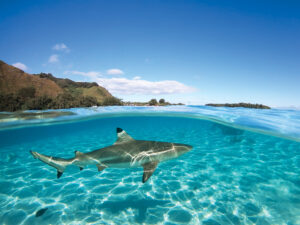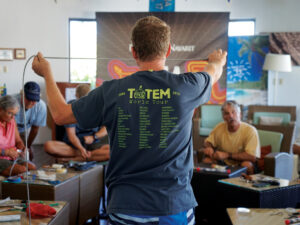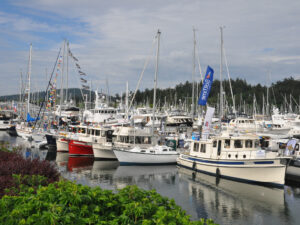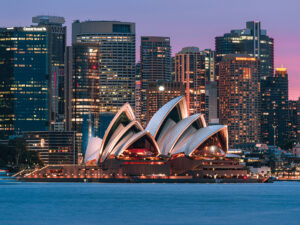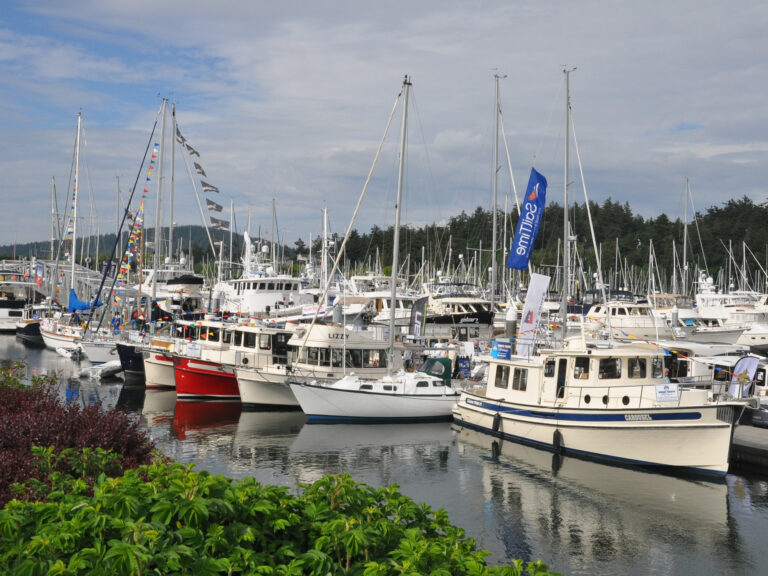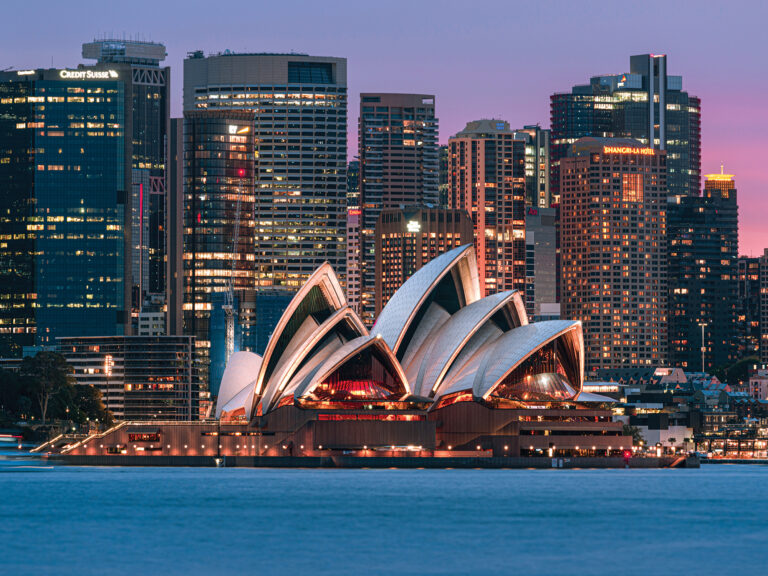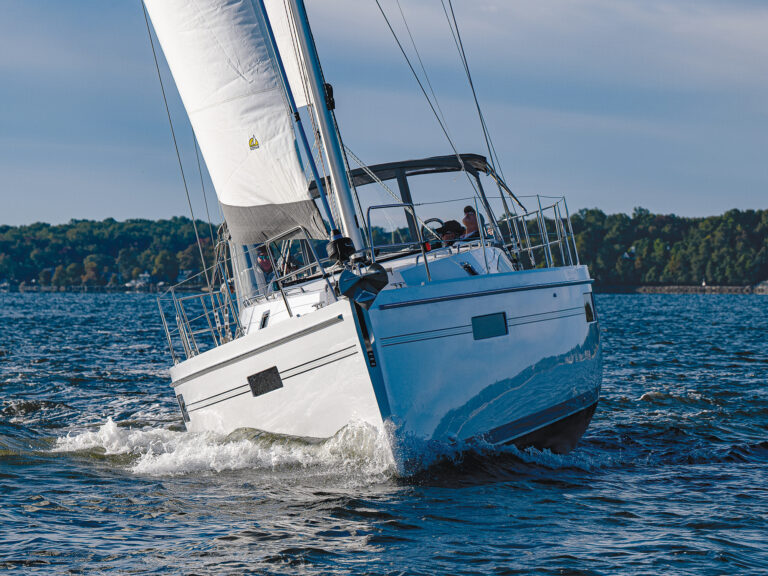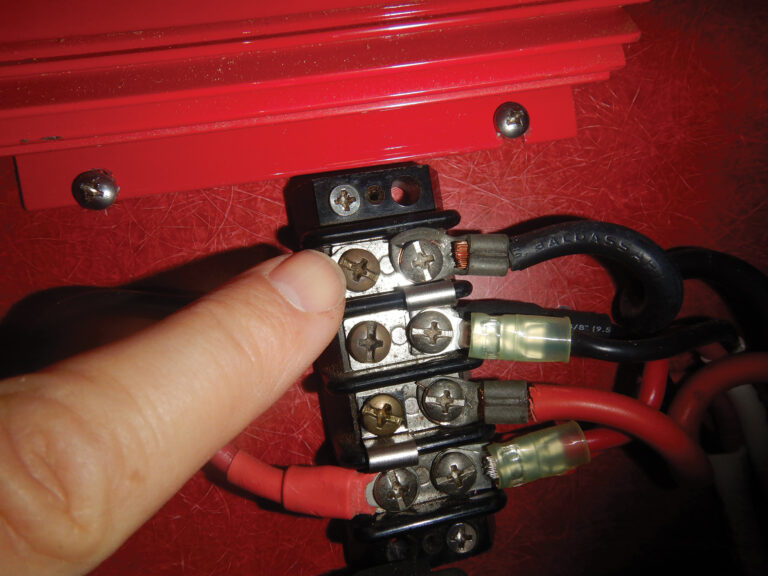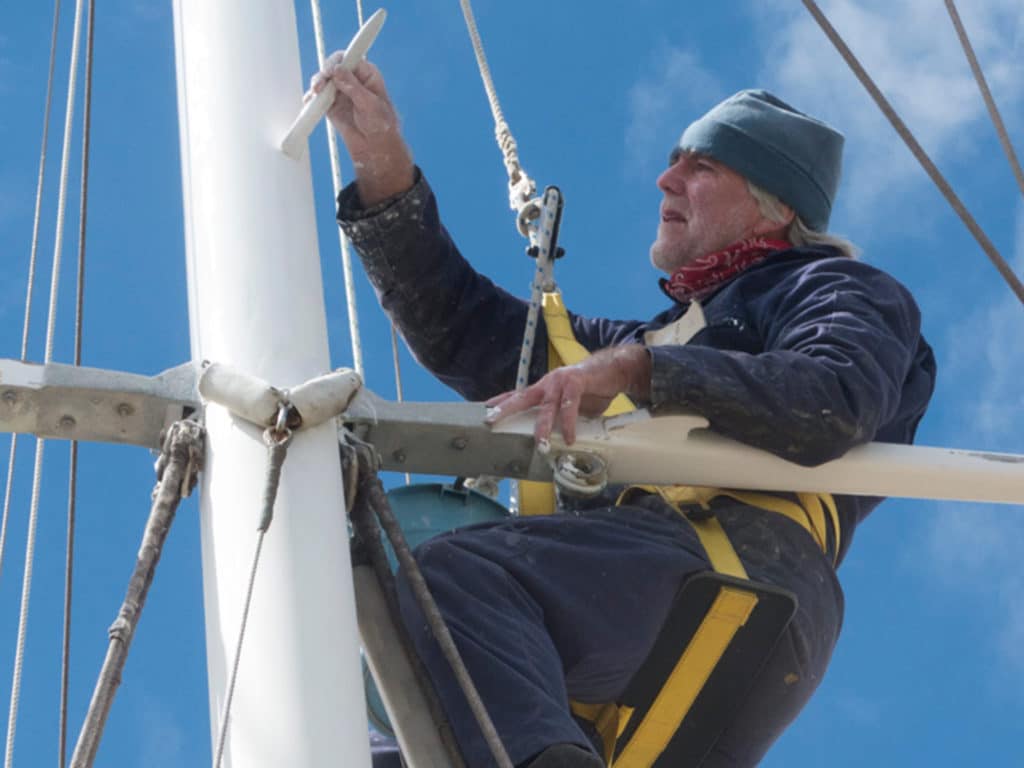
As the coronavirus continues to change and reshape the world as we know it, Cruising World is reaching out to contributors, our partners in the marine industry and other sailors to get their take on where they are and how they’re doing. We’re asking five questions to each of them, and in this installment, we’re checking in on high-latitude adventurers Kicki Ericson and Thies Matzen, who are currently in Port Stanley, the Falklands, aboard Wanderer III. Kicki and Thies were awarded the Blue Water Medal by the Cruising Club of America in 2011.
1. It’s been a while since we’ve had a chance to catch up. Where are you and Wanderer III these days and how are you doing?
Kicki: I find myself reaching out to many people during this pandemic—to hear how they are, to hear what their situation is, to feel community. A gale is blowing against our rigging as I sit here inside Wanderer III’s cozy heated cabin, and yesterday’s blue-sky sunshine has morphed into a gray.
We’re back in the Falkland Islands. Catching up on repair and maintenance after another year spent on South Georgia. Paint jobs suffer in the ice, that’s both sea ice scraping the hull, and frost-lifting paint. Thies overhauled the engine, and if it weren’t for coronavirus, we’d be on the hard. We haven’t hauled out in over seven years, so it’s about time. The copper sheathing helps us not worry too much though.
We spend a lot of time listening to the BBC World Service radio. It’s our only source of news, other than intermittent emails from loved ones. For the first time in the more than 30 years of cruising, I feel compelled to keep abreast of current events. Normally, I’ve been fine to hear world news sporadically. I was more interested in understanding where I was, getting to know the locals—both human and animal. But the coronavirus is different; my family and friends are affected directly and dramatically. We all are. Society, economy, and the environment will feel the impact for years to come. This is a game changer.
Thies: As Kicki said, we’ve spent much of this summer quite uneventfully with a paintbrush and spanner in our hands while awaiting the outcome of an idea I have initiated, as it would guide our next steps.
In 2011, I envisioned the creation of a memorial to the whale in the ex-whaling station at Grytviken on South Georgia, where industrial Antarctic whaling started.
Whaling was a mindset of the past, while the whales carry the environmental message for the future. I imagined shifting the focus from whaling to the whales in the whaling station itself. This would be a powerful statement.
This would be the first ever memorial to a wild taxon of animals as global as us—honoring, respecting and celebrating them. We humans have never before placed a wild animal alongside us like that.
My idea has now been taken on by the South Georgia Heritage Trust, sadly in a very reduced form. This all has kept me occupied for quite a few years and relates to the coronavirus in a surprising way: the virus’ direct threat is managing to affect a societal response that the climate crisis finds so difficult to achieve. Both demand a major change to the ever-churning wheel of our interconnected global economy.
2. Are you seeing disruptions caused by the Coronavirus? What’s happening where you are?
Kicki: The three nearest countries—Chile, Argentina and Uruguay—have closed their ports and are in varying degrees of lockdown. The Falklands are in lockdown too, but our life isn’t particularly restricted. We are used to being self-sufficient. I’ve got three-months-worth of food and supplies on board, and we are in a place with wonderful coastal walks. The recent good weather has allowed us to get a few more odd jobs done. So, other than not socializing, our life is quite normal.
People here are disciplined about keeping physical distance while at the same time offering support and encouragement in every possible way. The Falkland Islanders are very independent and resilient people. There is a great sense of “we will get through this together.” I can hardly think of a better place to be right now.
Thies: The cruising life relies on the openness of borders and the welcome of others. In these times, both are in short supply. Three charter yachts that ply these waters have slipped into Stanley, going through quarantine, after not having been allowed into South America. Like us, their crews are maintaining the social distancing rules, and will spend the winter here as they can’t go anywhere else, not even within the Falklands. Almost all of the Falklands is privately owned land, and all the farms are isolating, which leaves only a few anchorages around Stanley open for us—looks like it will be time for a lot of carving and reading.
3. You guys have spent lots of time not in quarantine, but on long ocean passages or in remote locations such as wintering over on South Georgia. What sort of advice do you have for couples or individuals who suddenly find themselves shut off from the outside world?
Kicki: Corona times are for being in touch with loved ones. Beyond that: Have projects. It’s a great time for catching up on all those activities you somehow never found time for. But more importantly, be sure to embrace “empty time.” Daydreaming is constructive. Allow your mind to wander and meander. Ponder things. Hold on to thoughts. And then: Write! Write freely and honestly. Write purely for yourself. Call it a diary, a journal, a logbook, or a letter to the future. Don’t worry what you write, just write. It’s such a good outlet and pastime. And it can be so helpful in structuring anything from stress to creativity. You will be amazed at how much there is to write about once you open the floodgates.
Thies: Being shut off from the outside world was precisely what an ocean voyage used to offer—in pre-radio-set, pre-satellite-linked times. If completely unlinked and confined to a natural space similarly beautiful as the ocean, enjoy it, see it as something beautiful, an opportunity, as a discovery voyage opening you towards a widening perspective. Read, do something for your mind, take a piece of wood and start carving, watch wildlife, but try always to balance both: Find your inside world, yet also engage, be, with the very world you are in.
Yet, how difficult is this, when you know that these are times of existential worries and loss.
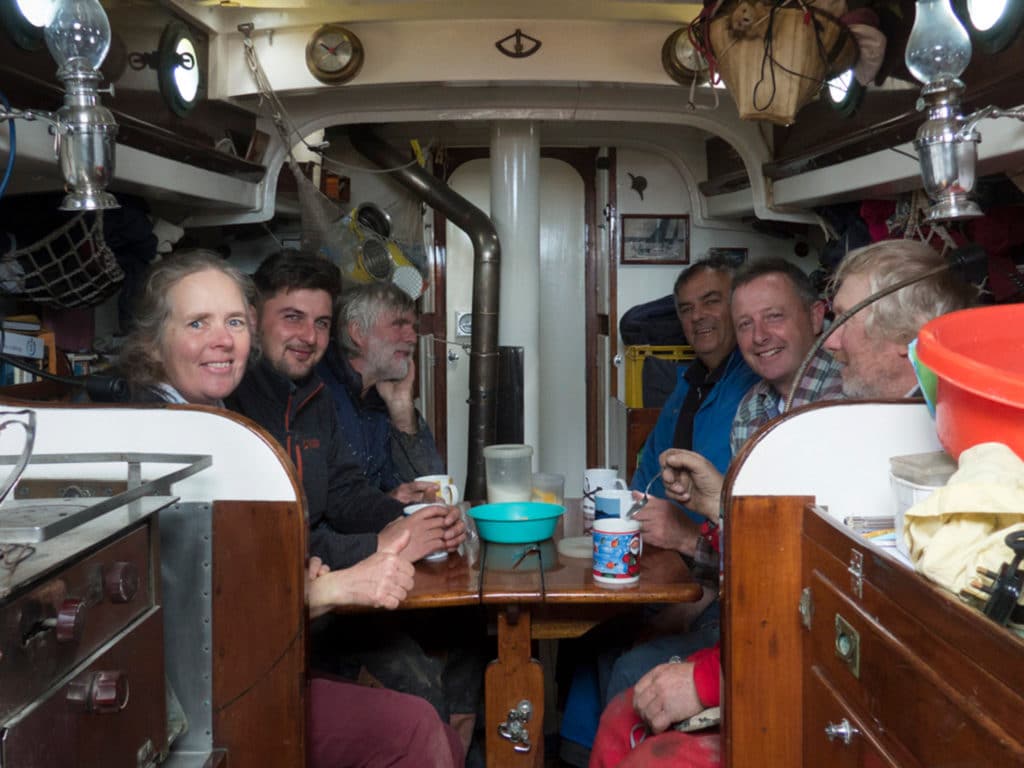
4. What have you discovered in your recent travels that has amazed or surprised you?
Kicki: I am amazed at how local decision-making is being deferred to far-away places, even when this threatens to take common sense out of the equation.
Thies: That the whales have re-discovered South Georgia, after almost a century of not having been seen there in any numbers. Between 2009 and 2011 we only counted a total of four; in 2018, we saw several pods of dozens and more.
5. You two live on Wanderer and are wanderers yourselves. Name a few places still on your Must-See, Must-Do List, and where are you off to next?
Kicki: I don’t feel any urgency for “must-see” or “must-do.” It’s good as it is. We have, over the years, deepened our relationships with people and places. In the last 22 years, we’ve concentrated on the high southern latitudes—from sub-Antarctic New Zealand to the Antarctic Peninsula. We’ve spent a total of three and a half years on South Georgia during three long visits; that’s three winters and five summers. To witness nature in a fairly primal, raw state feels like a privilege, something to draw from.
Now we’re thinking of returning to the South Seas, where we spent the 1990s. This includes Samoa, where Thies has Samoan relatives, but also many atoll nations. Back then there were no phones, let alone internet, on most Pacific islands. Today they face sea level rise and an ocean changed by acidity, pollution, higher temperatures, and over-fishing. It’s time to see how the people we knew then are faring now.
Thies: Must-See: The South Sandwich Islands. But not, really, on Wanderer—there are limits to what we as a two-person-one-wooden-boat team can and should sensibly do. But would I like to see them? Absolutely!
Must-Do: visit that one, lone island in the Pacific which I will not name, but which hasn’t left my imagination ever since an old South Sea trading schooner captain, whom I had worked for, spoke of it almost 30 years ago. And once the heat in the Pacific slows down the mind too much, sail north into the Northern Pacific—Japan, Alaska—the only oceanic area Wanderer hasn’t yet been.
Seven Stories by Thies Matzen
Thies Matzen has been a longtime contributors to Cruising World. To follow some of his and Kicki’s adventures, click on the links below.
Sailing the Antarctic Island of South Georgia

